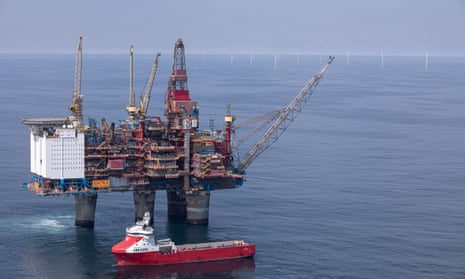Fossil fuel companies are investing twice as much in oil and gas as they should if the world hopes to limit rising global temperatures to avert a climate catastrophe, according to the International Energy Agency (IEA).
The world’s energy watchdog said that the sector still had “minimal” engagement with the global clean energy transition, and continued to contribute just 1% of clean energy investment globally.
In a special report before the Cop28 climate talks in Dubai, which begin on 30 November, the agency called on the oil and gas industry to show commitment to tackling pollution by balancing its investments in clean energy and fossil fuels.
The IEA executive director, Fatih Birol, said the industry faces “a moment of truth” in which it must “make profound decisions” about its role.
“With the world suffering the impacts of a worsening climate crisis, continuing with business as usual is neither socially nor environmentally responsible,” he said.
If governments deliver on their national energy and climate pledges then demand for fossil fuels would fall 45% below the current level by 2050, the IEA said. If climate policies are accelerated to meet the goal of limiting global heating to within 1.5C of pre-industrialised levels then fossil fuel use would decline by more than 75% by 2050.
Birol said rising public outrage against the fossil fuel industry was likely to grow as the link between extreme weather events and carbon emissions became better understood.
“This is a very important development. The more we see these extreme weather events the harder it will be for the industry to justify a failure to act. Many claim that they want to be part of the fight against climate change but it’s time that they show this,” he said.
Oil and gas companies spend about 2.5% of their capital on clean energy technologies such as renewables and electric vehicle charging, compared with 97.5% on traditional business areas, according to Birol.
after newsletter promotion
He said the split should be at least 50% on clean energy, and that companies should also take action to cut the emissions from their fossil fuel production.
Oil and gas companies have reported annual revenues of almost $3.5tn (£2.8tn) in the past five years, according to the IEA. The agency said about half of this was paid to governments, and 40% went back into investment, leaving about 10% to be returned to shareholders or used to pay down debt.
